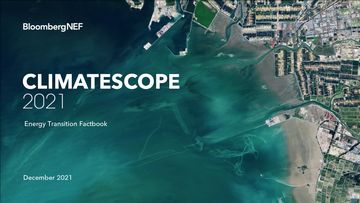Argentina
With a cumulative score of 1.54, Argentina ranks number 44 among emerging markets and number 73 in the global ranking.
- Emerging markets
- Americas
2.12 / 5
Power score
0.80 / 5
Transport score
0.57 / 5
Buildings score
Low-carbon strategy
Net-zero goal and strategy
Argentina has stated its intention to achieve net-zero emissions by 2050, but it has not yet presented a long-term strategy to achieve this goal.
Nationally Determined Contributions (NDC)
In December 2020, Argentina submitted its second ‘nationally determined contribution’ (NDC) – its plan to help achieve the goals of the Paris Agreement – to the United Nations Framework Convention on Climate Change (UNFCCC). The country has committed unconditionally to not exceed the net emission of 359 million metric tons of carbon dioxide equivalent (MtCO2e) in 2030. That is equivalent to a 19% reduction in emissions versus the historical peak reached in 2007. The target applies to all sectors of Argentina’s economy.
Fossil fuel phase-out policy
The country does not have a policy to phase out its fossil-fuel-powered plants.
Power
Power policy
Argentina passed a renewable energy law in 2015 and has been holding renewables auctions since then. The legislation set a series of targets for the share of renewables in national electricity consumption, starting with 8% by 2017 and gradually rising to 20% by the end of 2025. Argentina did not meet the initial milestone, with renewables supplying just 2% of electricity demand in 2017. This share had grown to just over 10% in 2020.
The renewable energy law also established new conditions for the development of wind and solar in the country, giving renewables projects access to incentives such as accelerated depreciation and exemption from VAT and import duties. Large consumers are obliged to meet renewables targets individually and may sign bilateral power purchase agreements (PPAs) to help achieve their objectives.
Power policies
Power prices and costs
Due to Argentina’s poor economic conditions, power tariffs have been frozen for more than a year.
Power market
Under Argentina’s renewable energy auction scheme, RenovAr, PPAs have had a standard 20-year length for the past four auctions and were denominated in U.S. dollars. Outside of government contracts, there are no restrictions on the duration of bilateral PPAs between corporations and clean energy generators. Renewable developers that participate in this market can request priority dispatch in the quarterly rounds of the Renewable Energy Term Market (MATER).
Despite challenges, Argentina set a new annual record for wind and solar additions in 2020, with 1.5 gigawatts (GW) connected to the grid.
Installed Capacity (in MW)
Electricity Generation (in GWh)
Utility privatisation
Which segments of the power sector are open to private participation?
Wholesale power market
Does the country have a wholesale power market?
Doing business and barriers
Insufficient transmission capacity and weak power demand has stopped Argentina’s government from holding larger renewables auctions over the past four years. Economic instability is affecting investment in renewables, as well as power demand growth, and the current crisis has delayed clean energy projects.
Argentina’s economic crisis is a huge challenge for renewables projects looking to secure financing. In 2015, the World Bank assisted Argentina by providing a Renewable Energy Fund Guarantee, linked with the government auctioned PPAs. This was a key factor in encouraging investment in the country.
Currency of PPAs
Are PPAs signed in or indexed to U.S. Dollars or Euro?
Bilateral power contracts
Can a C&I (Commercial and Industrial) customer sign a long-term contract (PPA) for clean energy?
Bilateral power contracts
Can a C&I (Commercial and Industrial) customer sign a long-term contract (PPA) for clean energy?
Fossil fuel taxes
Does the government influence the wholesale price of fossil fuel (used by thermal power plants) up through taxes?
Bilateral power contracts
Can a C&I (Commercial and Industrial) customer sign a long-term contract (PPA) for clean energy?
Fossil fuel subsidies
Does the government influence the wholesale price of fossil fuel (used by thermal power plants) down through subsidies?
Transport
EV market
The electric vehicle (EV) market in Argentina is in its infancy. Annual EV sales represent just 0.01% of total vehicle sales.
EV policy
Import taxes have been temporarily lowered or exempted for EVs, hybrids and fuel-cell vehicles in Argentina. However, there is a limit to the number of vehicles that can benefit from this incentive.
Transport policies
Fuel economy standards
Does the country have a fuel economy standard in place?
Buildings
Buildings market
Argentina has a specific government department for energy efficiency, which publishes guidelines for energy efficiency in households, transport, and other industries.
Energy performance standards
Are there minimum energy performance standards for buildings?
Energy efficiency plan
Does the country have a national energy efficiency plan?
Buildings policy
The government has yet to implement any substantive policy support in this sector and the low-carbon heating and cooling market remains at an early stage.

